Strictly Personal
Yes, Aisha Buhari eats from poor people’s money! By Festus Adebayo
Published
2 years agoon
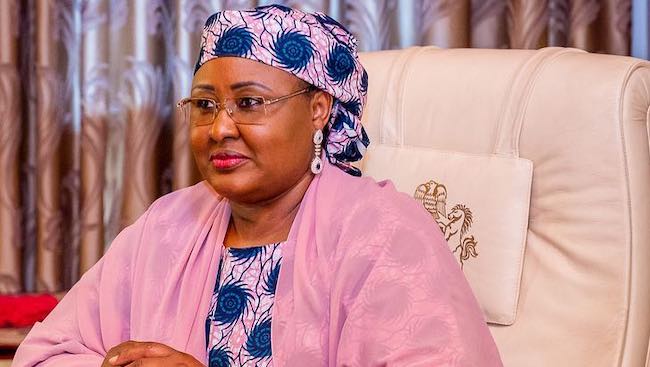
Though the wife of the Nigerian president, Aisha Buhari, has discontinued her defamation case against Aminu Adamu, the final year student of the Federal University, Dutse, Jigawa State, the court of public opinion cannot afford to throw the issue into the dustbin. In what was the Nigerian First Lady’s most recent controversy, having allegedly ordered the arrest and detention of the university student, massive flaks against her and the futility of continuing the matter, it was said, must have necessitated the withdrawal of the apparently dead-on-arrival matter.
Aside from the above, the concept of the First Lady and its implications for the social health of society today deserves to be re-examined. The cliché, “behind every great man is a great woman” has led political scientists, psychologists, sociologists, and philosophers to look intently into the texture of the characters of spouses of rulers of the world. This is because, mere concentration on political actors and their policies have failed to unravel, in many cases, why they behave the way they do. With the arrest, detention, and alleged torture of Adamu on the orders of Mrs. Buhari, the question of who Aisha Buhari really is has been more compelling. Is she a villain dressed in the robe of power or a victim of the icing on the cake of power?
On a Twitter post, Adamu had attributed the bloat in the physique of the First Lady to and symbolizing excessive romance with the Nigerian national pot of soup. Adamu had specifically tweeted: Su mama anchi kudin talkawa ankoshi, which translates to “the mother has gotten fat on masses money.” He accompanied this tweet with a puffed-up picture of the First Lady. Piqued by what she must have considered a plebeian audacity, Aisha was reported to have ordered the young man’s arrest and his rough parceling to the Nigerian presidential villa, where he was allegedly tortured and remanded in prison,
The truth is that the First Lady and the Nigeria Police who charged Adamu for defamation by his tweet, perhaps due to the many decades of military rule, do not understand the proper concept of democracy; nor do they have a whiff of what representative democracy is all about. When purged of all the unnecessary icing of its highfalutin definition, representative democracy, which we practice in Nigeria, is a give-and-take concept. Also known as indirect democracy, it is a type of democracy where elected people act to represent a group of people. It is a system practiced by nearly all western-styled democracies, its typical examples being the United Kingdom and the United States of America. Broken down to its granules, in representative democracy, the people, aware of the disorder it would have meant for everybody to be in parliament and Government Houses at the same time, place the power to govern them in the hands of their representatives who they elect in a periodic election ritual.
Representative democracy has its origin in the Roman Republic, which was the first known state in the Western world to practice it. Romans sold this system to the world in which, though supreme power lay in the hands of the people, they ceded this power to their elected representatives who then wield the power on their behalf. In most instances, these are representatives who are felt to have superior knowledge of administering society or who possess some rare qualities that are not found in the generality of the people. The people however reserve the power and right to withdraw such powers in the form of recall from the parliament and impeachment of this erring representative by their representatives in the parliament.
To focus the attention of these representatives on the business of governance, the people make available to them some measure of comfort which they get from their consolidated national pool, their national patrimony. The house built in the people’s name and with their resources, which is christened Government House, is made available to these representatives to live in, free of charge. The ones who could not live in this house are rewarded in cash called Housing Allowance. It is not because they are more entitled to live therein than the people who they represent. They also eat free food, paid for the patrimony of the people. For their time which is sacrificed, they are paid salaries and other allowances. The health and well-being of these representatives are the bothers of the state. Thus, in many democracies, they are treated free of charge from the pool of the people’s money. In fact, so that they are not distracted, the state also pays for their children’s schooling and their wives’ comfort. The representative needed not to be distracted looking for food, and shelter, and bothering about the wellbeing of his spouse. So the state caters to virtually all the family members of the representative.
In the 2023 budget estimate, the offices of Aisha’s husband, President Buhari, and his Vice-President, will spend the sum of N11.92 billion on local and foreign trips, as well as on the presidential air fleet. It is inclusive of the sum of N1.58bn which was earmarked for aircraft maintenance and another N1.60bn which was allocated for the overhaul of the Gulfstream GV and CL605 aircraft engines of the presidential office. In the same vein, the Office of the President was slated to spend N2.49bn on local and foreign trips, and the Vice-President’s office, N846.61m. Fuelling of these aircraft, according to the budget, will cost the Nigerian taxpayers which comprised the poor and the rich, the sum of N250m, while N650m will be spent to purchase a new mobile helicopter landing pad.
In the same budget, the sum of N40.45m was penciled for the construction and equipping of a new presidential kitchen and a total of N508.71m to be spent on foodstuffs and refreshments, an amount which stands at N331.79m and N176.92m for the offices of the President and Vice-President respectively. I am not aware that the above sums emanated from the private wealth of Mrs. Buhari’s husband or from the proceeds of his cows in Daura. She can only be allowed to claim that she had not eaten the poor people of Nigeria’s money if any of the amounts earmarked for the Villa feeding and comfort does not have her participation in them in the last seven and half years.
It was this same Mrs. Buhari whose daughter, Hanan stirred the hornet’s nest when she was conveyed by the Presidential jet to attend the Durbar in Bauchi. By Nigerian governmental convention, it is only the President, First Lady, Vice-President, Senate President, Speaker of the House of Representatives, the Chief Justice of Nigeria, former Presidents, and a Presidential delegation, are allowed to use the Presidential jet. It will also be recalled that, in that year’s budget, the amount voted for the Presidential jets was N8.5bn. Hanan, who graduated in Photography from Ravensbourne University, London, was said to have gone to Bauchi on a special invitation as a special guest of honour of the Emir of Bauchi, Rilwanu Adamu.
Photographs of her Hanan disembarking from the presidential plane and being welcomed by Gombe State officials went viral around this time. The Emir was said to have invited her to the Durbar so that she could take photographs of the celebration, Bauchi architecture, as well as some other cultural sites in the state. While Mrs. Buhari’s daughter was engaged in this unconscionable abuse of office and waste of taxpayers’ money by this act, it beggars belief that the same woman would be miffed by the allegation that she was chopping poor Nigerian people’s money. Before getting into office, her husband, then Major General Buhari, was trenchant in his criticism of the Goodluck Jonathan government and the ones before him, for expending public funds on unjustifiable things.
For all our food and the comfort of our collective home called Aso Villa where she lives, all we ask from the First Lady is tolerance. She would only have had a defence in court if she could present verifiable and irrefutable evidence that she spends her personally earned money and not money belonging to the poor and the rich of Nigeria, to feed herself in the last seven and half years plus. If she could not, she would lack every right to litigate against a 24-year-old Nigerian who claimed that the Nigerian people’s money, with which she feeds, must have been responsible for her bloated physique. She might however have had a defence if she could provide evidence to show that she recently acquired sheppopotamus-size image – apologies for the nil discretion in an earlier statement by Prof Wole Soyinka so describing Mrs. Goodluck Jonathan – was as a result of a health challenge and not from proceeds of Nigerian people’s money which she chops legitimately.
With an apparent dearth of Paparazzi journalism in Nigeria, the type that unearthed several hidden details of Princess Diana’s liaison with her Arab consort, Dodi Fayed, scholars must rise to the people’s rescue and begin to piece Aso Villa jigsaws together. Perhaps by so doing, they could arrive at the current frame of mind and fitting psychoanalysis of the office of the First Lady under Buhari. Except for photo-op sessions, there have been allegations of no love lost between Aisha and the Nigerian president. Specific suggestions have even sidled into public discourse that the First Lady does not enjoy spousal attention from her husband.
The first absurd manifestation of this in the public was Mrs. Buhari’s open antagonism and criticisms of her husband’s government in the early years of the administration. This was so notoriously manifest that many people concluded that if indeed the couple lived together as husband and wife and indeed shared affection, she could have offered those pieces of advice in the presidential closet. In 2019, while appearing on a Lagos television show, Aisha was asked why she was always criticizing her husband in the public rather than having “pillow talk” conversations with him that symbolizes spousal affinity and interaction, she replied, “there is no pillow in the villa. No,” She however attributed this to their busy schedule.
Again, the brawl at the Villa between her and the leader of Aso Rock’s cabal, Mamman Daura, revealed an ugly underbelly of the relationship between Aisha and her husband. What came to the limelight was that the two live in different apartments in the Villa. The brawl between Daura’s daughter and the First Lady showed that there was an attempt to de-room Mrs. Buhari in favour of Daura’s daughter. On top of this, a couple of years ago, the First Lady packed her belongings out of her «matrimonial home» and made the UAE her home. These absurd revelations should interest scholars of the social health of Nigeria’s seat of power.
The psycho-analysis would need to be made of these mis-matrimonial manifestations in the First Family, so as to decipher whether Mrs. Buhari’s current fly-off the handle had a direct correlation to her matrimonial frustration. It was the same despotic disposition that Ondo State people saw in Feyi George, wife of their military governor, Naval Officer Olabode George, in the 1990s. The “couple” had left office before it came to the fore that that marriage was for the press and in actual fact, the two actors were miles apart and merely acting marriage. Scholars would thus need to help us unravel whether Nigerians are witnessing another marriage of convenience between Aisha and her husband, the Nigerian president. If this is it, we may then begin to see a connection or corollary between some disjunctive manifestations in power at Aso Rock and this spousal spat.
No woman would live with a fib that intent analysis of Aso Rock matrimony portrays as a presidential family without an occasional urge to bare the fangs of a tiger. It is not unlikely that what the world saw in the Adamu tackling was an attempt to grasp at a straw which the “power wielder” mis-perceived as power through that unnecessary anger at Adamu. This is because Mrs. Buhari looks too charming and matronly to behave in a manner that could only have been advertised by Mrs. Idi Amin Dada.
What Mrs. Buhari did with Adamu was a crude and naked abuse of power. If she wasn’t wrong by her act, then our fathers and mothers who died in the bid to dethrone military rule and embrace democracy died in vain. People died and were maimed for us to be where we are today, the courtyard of free speech. Free speech can only be checkmated by defamation and not the baring of a wolf’s claws. It is the antithesis to use the democratic office to harass anyone like a despot. Why what Aisha Buhari did to Adamu was an oxymoronic tragedy to the Nigerian people that, by that act, she got our people to snatch defeat from the jaws of victory.
You may like
-
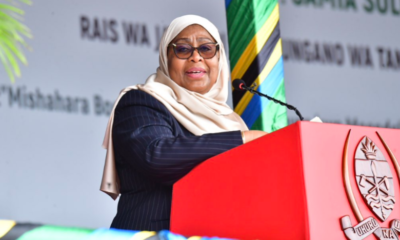

‘Slow burner’ Tanzania is at it again, but she needs to learn to make more noise, By Charles Onyango-Obbo
-
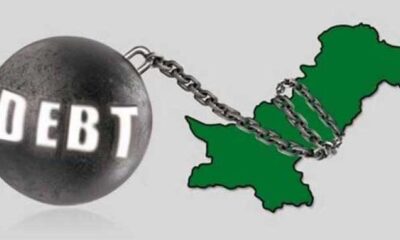

Forecast is not destiny; Africa is on the path to prosperity, By Mohamed Ghazouani
-


Don’t cry for Mandela’s party; ANC’s poll loss is self-inflicted, By Jenerali Ulimwengu
-
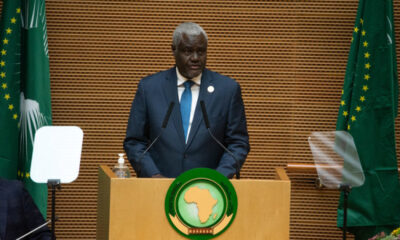

If I were put in charge of a $15m African kitty, I’d first deworm children, By Charles Onyango-Obbo
-
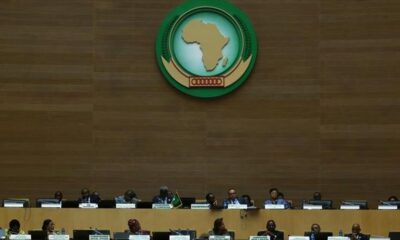

AU shouldn’t look on as outsiders treat Africa like a widow’s house, By Joachim Buwembo
-
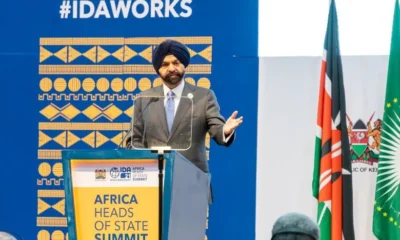

In 64 years, how has IDA reduced poverty in Africa? By Tee Ngugi
Strictly Personal
All eyes in Africa are on Kenya’s bid for a reset, By Joachim Buwembo
Published
5 days agoon
July 21, 2024
Whoever impregnated Angela Rayner and caused her to drop out of school at the tender age of 16 with no qualifications might be disappointed that we aren’t asking who her baba mtoto (child’s father) is; whether he became a president, king or a vagabond somewhere, since the girl ‘whose leg he broke’ is now UK’s second most powerful person, 28 years since he ‘stole her goat’.
Angela’s rise to such heights after the adversity should be a lesson to countries which, six decades after independence, still have millions of citizens wallowing in poverty and denied basic human dignity, while the elite shamelessly flaunt obscene luxury on their hungry, twisted faces.
After independence, African countries also suffered their adolescent setbacks in the form of military coups. Uganda’s military rule lasted eight years, Kenya’s about eight hours on August 1, 1982, while Tanzania’s didn’t materialise and its first defence chief became an ambassador somewhere.
What we learn from Angela Rayner is that when you’re derailed, it doesn’t matter who derailed you, because nobody wants to know. What matters is that you pick yourself up, not just to march on, but to stand up and shine.To incessantly blame our colonial and slave-trading ‘derailers’ while we treat our fellow citizens worse than the colonialists did only invites the world to laugh. Have you ever read of a colonial officer demanding a bribe from a local before providing the service due?
African countries today need to press ‘reset’. A state operates by written policies, plans, strategies and prescribed penalties with gazetted prisons for those who break the rules. This is far more power than teenage Angela had, so a reset state should take less time to become prosperous than the 28 years it took her to get to the top after derailing.
So it’s realistic for countries to operate on five-year planning and electoral cycles, so a state that fails to implement a programme in five years has something wrong with it. It needs a reset.
A basic reset course for African leaders and economists should include:
1. Mindset change: Albert Einstein teaches us that no problem can be solved from the same level of consciousness that created it. For example, if you are in debt, seeking or accepting more debt is using the same level of thinking that put you there. If you don’t like Einstein’s genius, you can even try an animal in the bush that falls into a hole and stops digging. Our economists are certainly better than a beast in the bush.
2. Stealing is wrong: African leaders and civil servants need to revisit their catechism or madarasa – stealing public resources is as immoral as rape.
3. Justifying wrong doesn’t make it right: Using legalese and putting sinful benefits in the budget is immoral and can incite the deprived to destroy everything.
4. Take inventory of your resources and plan to use them: If Kenya, for example, has a railway line running from Mombasa to Nairobi, is it prudent to borrow $3.6 billion to build a highway parallel to it before paying off and electrifying the railway?
If Uganda is groaning under a $2 billion annual petrol import bill, does it make sense to beg Kenya for access to import more fuel, when Kampala is already manufacturing and marketing electric buses, while failing to use hundreds of megawatts it generates, yet the country has to pay for the unused power?
If Tanzania… okay, TZ has entered the 21st Century with its electric trains soon to be operating between Dar es Salaam and Morogoro. Ethiopia, too, has connected Addis Ababa to the port of Djibouti with a 753-kilometre electric railway, and moves hundreds of thousands of passengers in Addis every day by electric train.
5. Protect the environment: We don’t own it, we borrowed it from our parents to preserve it for our children. Who doesn’t know that the future of the planet is at stake?
6. Do monitoring and evaluation: Otherwise you may keep doing the same thing that does not work and hope for better results, as a sage defined lunacy.
7. Don’t blame the victims of your incompetence: This is basic fairness.
We could go on, but how boring! Who doesn’t know these mundane points? We are not holding our breath for Angela’s performance, because if she fails, she will be easily replaced. Africa’s eyes should now be on Kenya to see how they manage an abrupt change without the mass bloodshed that often accompanies revolutions.
Strictly Personal
The post-budget crisis in Kenya might be good for Africa, after all, By Joachim Buwembo
Published
2 weeks agoon
July 10, 2024
The surging crisis that is being witnessed in Kenya could end up being a good thing for Africa if the regional leaders could step back and examine the situation clinically with cool-headed interest. Maybe there is a hand of God in the whole affair. For, how do explain the flare not having started in harder-pressed countries such as Zambia, Mozambique and Ghana?
As fate would have it, it happened in East Africa, the region that is supposed to provide the next leadership of the African Union Commission, in a process that is about to start. And, what is the most serious crisis looming on Africa’s horizon? It is Debt of course.
Even the UN has warned the entire world that Africa’s debt situation is now a crisis. As at now, three or four countries are not facing debt trouble — and that is only for now.
There is one country, though, that is virtually debt-free, having just been freed from debt due to circumstances: Somalia. And it is the newest member of the East African Community. Somalia has recently had virtually all its foreign debt written off in recognition of the challenges it has been facing in nearly four decades.
Why is this important? Because debt is the choicest weapon of neocolonialists. There is no sweeter way to steal wealth than to have its owners deliver it to you, begging you, on all fours, to take it away from them, as you quietly thank the devil, who has impaired their judgement to think that you are their saviour.
So?
So, the economic integration Africa has embarked on will, over the next five or so years, go through are a make-or-break stage, and it must be led by a member that is debt-free. For, there is no surer weapon to subjugate and control a society than through debt.
A government or a country’s political leadership can talk tough and big until their creditor whispers something then the lion suddenly becomes a sheep. Positions agreed on earlier with comrades are sheepishly abandoned. Scheduled official trips get inexplicably cancelled.
Debt is that bad. In African capitals, presidents have received calls from Washington, Paris or London to cancel trips and they did, so because of debt vulnerability.
In our villages, men have lost wives to guys they hate most because of debt. At the state level, governments have lost command over their own institutions because of debt. The management of Africa’s economic transition, as may be agreed upon jointly by the continental leaders, needs to be implemented by a member without crippling foreign debt so they do not get instructions from elsewhere.
The other related threat to African states is armed conflict, often internal and not interstate. Somalia has been going through this for decades and it is to the credit of African intervention that statehood was restored to the country.
This is the biggest prize Africa has won since it defeated colonialism in (mostly) the 1960s decade. The product is the new Somalia and, to restore all other countries’ hope, the newly restored state should play a lead role in spreading stability and confidence across Africa.
One day, South Sudan, too, should qualify to play a lead role on the continent.
What has been happening in Kenya can happen in any other African country. And it can be worse. We have seen once promising countries with strong economies and armies, such as Libya, being ravaged into near-Stone Age in a very short time. Angry, youthful energy can be destructive, and opportunistic neocolonialists can make it inadvertently facilitate their intentions.
Containing prolonged or repetitive civil uprisings can be economically draining, both directly in deploying security forces and also by paralysing economic activity.
African countries also need to become one another’s economic insurance. By jointly managing trade routes with their transport infrastructure, energy sources and electricity distribution grids, and generally pursuing coordinated industrialisation strategies in observance of regional and national comparative advantages, they will sooner than later reduce insecurity, even as the borders remain porous.
EDITOR’S PICK


Trevor Noah set for ‘Off the Record’ world tour
South African comedian and talk show host, Trevor Noah, has announced a date for his “Off The Record” global tour...


SA mobility startup LULA acquires UK-based Zeelo’s operations
South Africa’s mobility startup, LULA, has announced the acquisition of the operations of UK-based Zeelo in a move that will...


Ngannou accuses Joshua of employing dirty tactics in their fight in Saudi Arabia
Former UFC heavyweight champion, Francis Ngannou, has accused British-Nigerian boxer, Anthony Joshua, and his promotion team of employing unfair and...


#EndBadGovernance Protests: Please be patient with Tinubu’s govt, monarchs beg Nigerian youths
Some prominent traditional rulers in Nigeria have pleaded with Nigerian youths and organizers of the planned nationwide #EndBadGovernance protests scheduled...


UNESCO removes Senegal’s Niokolo-Koba National Park from list of World Heritage sites in danger
The United Nations’ Educational, Scientific and Cultural Organization (UNESCO) has removed Senegal’s Niokolo-Koba National Park from the list of World...


At Project Aliyense discourse, panelists call for balance between free speech, ethical considerations
The government has been urged to balance freedom of speech with ethical considerations and laws that prevent harm to others....


Adenia Partners acquires Air Liquide’s operations in 12 African countries
Adenia Partners, a leading private equity firm, has completed the acquisition of Air Liquide’s operations in 12 African countries, adopting...


We will handle planned nationwide protests as family matter— Nigerian Govt
The Nigerian government says it will handle the planned #EndBadGovernance protests scheduled to commence on August 1 as a family...


Veteran Nigerian entertainer Charly Boy vows to divorce wife if Kamala Harris doesn’t win US presidential election
Veteran Nigerian entertainer, Charles Oputa, popularly known as Charly Boy, has vowed to divorce his wife of 47 years if...


Saudi club Al Hilal places African transfer record bid for Osimhen
Saudi Arabia club side, Al-Hilal, have reportedly made an African transfer record bid for Super Eagles and Napoli striker, Victor...
Trending
-

 Sports1 day ago
Sports1 day agoMeet Nigerian-born players doing big things for Japan at Paris 2024 Olympics
-

 Metro2 days ago
Metro2 days agoWe will handle planned nationwide protests as family matter— Nigerian Govt
-

 Metro15 hours ago
Metro15 hours ago#EndBadGovernance Protests: Please be patient with Tinubu’s govt, monarchs beg Nigerian youths
-

 Tech2 days ago
Tech2 days agoAdenia Partners acquires Air Liquide’s operations in 12 African countries


